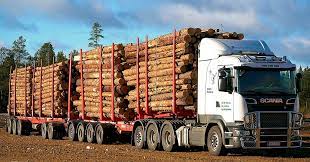By Mackie M. Jalloh
The Government of Sierra Leone, through the Ministry of Environment and Climate Change (MOECC), has announced the lifting of the suspension on the transportation of timber logs, signalling a major shift in the regulation of one of the country’s most contentious industries. The decision, made in consultation with key partners such as the Office of National Security and the Ministry of Internal Affairs, comes with immediate effect and aims to restore operations under stringent conditions to ensure compliance with environmental standards.
The press release, issued on November 18, 2024, detailed the framework guiding the resumption of timber transportation within and beyond Sierra Leone. While the move has been welcomed by timber stakeholders, environmental advocates remain cautious, calling for vigilance in ensuring that the industry does not once again spiral into unchecked exploitation.
Conditions for Timber Operations
The MOECC has emphasized that the suspension on the harvesting and transportation of Pterocarpus erinaceus—commonly known as “Gbenni”—remains firmly in effect. This species has been under strict protection to prevent overexploitation due to its high value and ecological significance. The preservation of Gbenni reflects the government’s commitment to maintaining biodiversity and protecting Sierra Leone’s vulnerable forest ecosystems.
However, the ministry has authorized the transportation of only pre-convention stocks of Afzelia africana—locally known as “Lenge.” This species was included in the Convention on International Trade in Endangered Species of Wild Fauna and Flora (CITES) Appendix II on February 23, 2023, marking it as a protected species under international environmental laws. Timber operators must secure compliance certificates from the Forestry Department and the MOECC before transporting any Lenge logs. This regulation underscores the government’s intent to strike a balance between economic interests and environmental preservation.
Enforcement and Compliance
The release also revealed that all security agencies have been briefed to ensure strict enforcement of these regulations. The involvement of security bodies aims to curb illegal logging and smuggling—practices that have long plagued Sierra Leone’s timber industry. Smugglers have often exploited regulatory loopholes, leading to significant revenue losses for the state and environmental degradation.
The ministry has urged all stakeholders, including exporters and local operators, to adhere to the outlined conditions. Non-compliance will attract severe penalties, ensuring that the country’s natural resources are not sacrificed for short-term economic gains.
Timber and Sierra Leone’s Economy
Timber has historically been one of Sierra Leone’s most lucrative yet controversial exports. The suspension, initially imposed to address concerns of illegal logging and environmental degradation, significantly disrupted the supply chain, impacting businesses and revenue streams. The lifting of the ban is expected to revive the sector, providing much-needed economic relief to local communities dependent on timber trade. However, this relief comes with a caveat: sustainable and legal practices must now guide the industry.
Environmental Concerns Persist
While the government has pledged to regulate timber operations more stringently, environmentalists warn that lifting the suspension could reignite destructive practices if oversight is weak. Sierra Leone’s forests have been under relentless pressure from both legal and illegal logging, with devastating consequences for biodiversity, soil quality, and water resources.
Local environmental groups have urged the government to strengthen monitoring mechanisms to prevent a return to the chaotic timber trade that previously undermined conservation efforts. They stress the importance of ensuring that the timber industry operates in a manner that benefits the nation economically while safeguarding its natural resources.
Moving Forward
The lifting of the suspension on timber transportation marks a critical juncture for Sierra Leone’s forestry sector. While it provides an opportunity for economic recovery, the success of this move will depend on the government’s ability to enforce its regulations effectively. With strict measures in place for the handling of protected species like Lenge and Gbenni, the MOECC has set the stage for a more sustainable approach to timber management.
Stakeholders and the public alike will be watching closely to see whether the government can deliver on its promise of balancing environmental preservation with economic growth. As the timber trucks roll back onto the roads, the challenge remains to ensure that Sierra Leone’s forests are not only a source of revenue but also a legacy for future generations.











